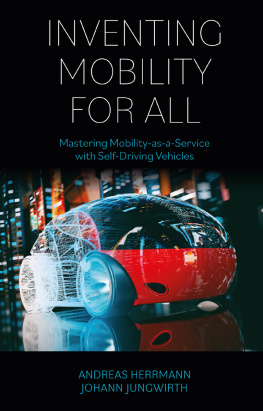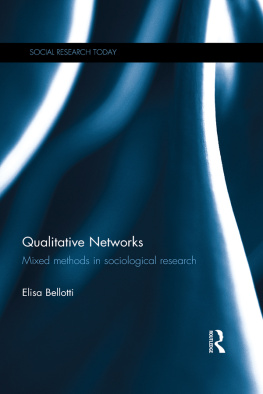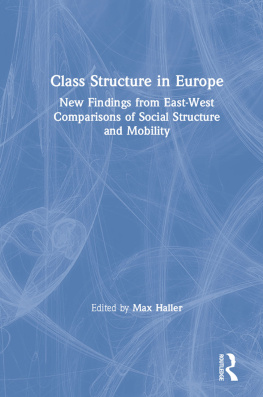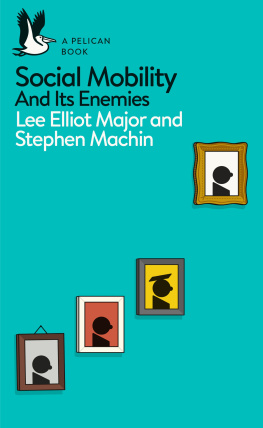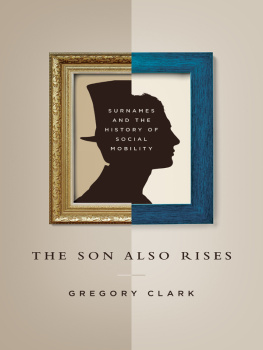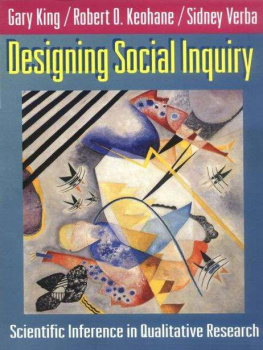PATHWAYS TO SOCIAL CLASS
PATHWAYS TO SOCIAL CLASS
A QUALITATIVE APPROACH TO SOCIAL MOBILITY
DANIEL BERTAUX, PAUL THOMPSON
Originally published in 1997 by Oxford University Press. Copyright 1997 by the several contributors.
Published 2007 by Transaction Publishers
Published 2017 by Routledge
2 Park Square, Milton Park, Abingdon, Oxon OX14 4RN
711 Third Avenue, New York, NY 10017, USA
Routledge is an imprint of the Taylor & Francis Group, an informa business
New material this edition copyright 2007 by Taylor & Francis.
All rights reserved. No part of this book may be reprinted or reproduced or utilised in any form or by any electronic, mechanical, or other means, now known or hereafter invented, including photocopying and recording, or in any information storage or retrieval system, without permission in writing from the publishers.
Notice:
Product or corporate names may be trademarks or registered trademarks, and are used only for identification and explanation without intent to infringe
Library of Congress Catalog Number: 2006044466
Library of Congress Cataloging-in-Publication Data
Bertaux, Daniel.
Pathways to social class : a qualitative approach to social mobility / Daniel Bertaux and Paul Thompson ; [with contributions by additional authors].
p. cm.
Rev. ed., originally published: Oxford : Clarendon Press ; New York : Oxford University Press, 1997.
Includes bibliographical references and index.
ISBN 1-4128-0613-5 (alk. paper)
1. Social classes. 2. Social mobility. I. Thompson, Paul Richard, 1935
II. Title.
HT611.B468 2006
305.5dc22
2006044466
ISBN 13: 978-1-4128-0613-8 (pbk)
CONTENTS
Daniel Bertaux And Paul Thompson
Paul Thompson
Daniel Bertaux and Isabelle Bertaux-Wiame
David Vincent
Isabelle Bertaux-Wiame and Paul Thompson
Giovanni Contini
Brian Elliott
Daniel Bertaux
Rudolf Andorra
Mike Savage
. Social Genealogy of the Terrenoire Lineage
. Social Genealogy of the Tiller Family
. Social Genealogy of the Smith Family
. Social Genealogy of the Smith Family
. Social Genealogy of the Chester Family
. Social Genealogy of the Hawk Family
. Social Genealogy of the Hawk Family
DANIEL BERTAUX is Directeur de recherche at the Centre dtude des Mouvements Sociaux of the CNRS and EHESS in Paris. His many publications on social mobility and on life stories include: Destins personnels et structure de classe and Biography and Society.
PAUL THOMPSON is Research Professor in Sociology at the Univer-sity of Essex. His books include: The Edwardians, The Voice of the Past, I Dont Feel Old, and The Myths We Live By. He is co-editor with Daniel Bertaux of Between Generations: Family Models, Myths and Memories.
ISABELLE BERTAUX-WIAME is a researcher in sociology at Travail et Mobilits, University of Paris X, and has written especially on families, mobility, and housing.
DAVID VINCENT is Professor of Social History and Deputy Vice-Chancellor at Keele University. His many publications on life histories and popular culture include: Bread, Knowledge and Freedom and Literacy and Popular Culture. He is currently researching on the making of the modern career.
GIOVANNI CONTINI was formerly a research fellow at Kings College, Cambridge, studying shop-floor bargaining, and is now responsible for the audio-visual archives of Tuscany. His publications include books on oral history and on the Galileo engineering factory in Florence.
BRIAN ELLIOTT is Professor of Sociology at the University of British Columbia. His main publications are: The Petite Bourgeoisie, The City: Patterns of Domination and Conflict, and Property and Power in a City. He is currently writing on migration and social mobility.
RUDOLF ANDORKA researched and wrote on demography and social mobility and for many years was head of the Statistical Institute in Budapest. He then became Professor of Sociology at the University for Economic Sciences, where he is now Rector. His work in English includes: Socio-occupational Mobility in Hungary and Poland and The Rich and Poor: Social Differentiation in Hungary.
MIKE SAVAGE is Professor of Sociology at the University of Man-chester. His research interests lie in social stratification and historical sociology. His books include: Social Change and the Middle Classes, Property, Bureaucracy and Culture: Middle Class Formation in Contemporary Britain, and Gender, Careers and Organisations.
1
Introduction
Daniel Bertaux And Paul Thompson
Behind this book lies a dream, which we have shared for many years: a dream of a renewed study of social mobility rising to grapple with the astonishing diversity and complexity of its fundamental theme. We are convinced that such a renewal must depend upon a broadening of methodological and theoretical perspectives. The closely linked case studies which we present here are demonstrations of the richness of insights which new approaches to social mobility can bring.
Social mobility processes are integral to the very metabolism and core regulation of societies, both to their continuity and change over time. It is through such processes that basic social structures of class, status, and situs (branches of industry) are reproduced or transformed, emerge or disappear; that societies themselves move forward, consolidate or splinter, that institutions and enterprises recruit, that families launch their children, that individuals imagine and seek personal fulfilment in their lives. These processes are complex because they operate within unstable frameworks, and because they are intrinsically reflexive. All these levels interact between each other and none of them are constant. The incessant thrust of technological and economic change continually creates new types of work and opportunity in some places, while wiping out entire industries and ways of life in others. Just as marriages break and firms go bankrupt, so whole political societies may be recast or split through revolutions, wars, or the dissolution of empires. Individuals swim in waters now benign, now turbulent. Some may flourish in an inherited family niche, while others will starve in the same way. Against those who succeed or fail through transmission, we need to set those who choose to migrate in search of a better life, those who move to escape an economic trap, or those driven to adapt by the turmoil of revolution, fleeing from persecution or war, and death.
Change originates not only from above, but equally from below, through the initiatives of masses of people. Through having fewer children or more, or through moving, voting with their feet, they can transform the structures of social space or demography.
At all social levelsfrom politics and economics to local and family relationshipssocial competition and rivalry intertwine with mutuality and obligation. And because all these levels interlock and interact and yet are propelled by their own semi-independent logic, the outcomes must always be uncertain. Equally important, the strategies which succeed in a particular historical time and social context cannot be assured to work in another. Individuals, families, and organizations struggle after ways of sur-viving or succeeding in social worlds which are always evolving: to create limited spheres of order in the perpetual shadow of turbulence or even chaos. This fundamental instability of the human social universe means that laws of social mobility would themselves be timebound illusions. The understandings which we can reach of the social meanings and experiences of mobility, and the complexity of processes which underlie it, cannot pretend to universality: their validity depends upon how clearly they reflect their historical moment.


